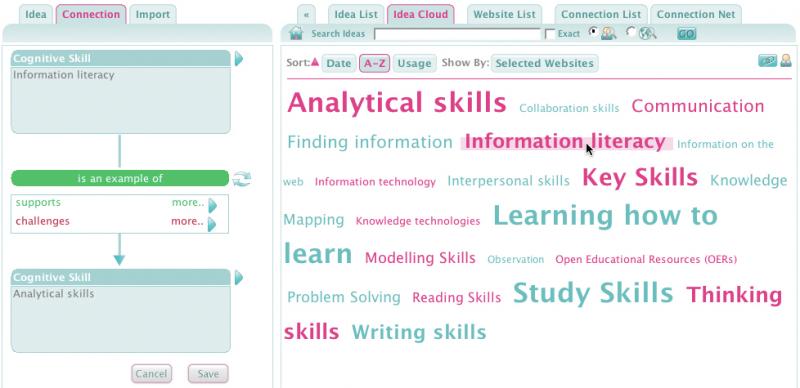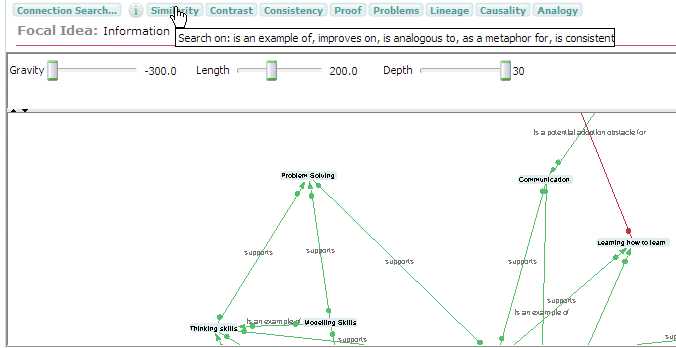Cohere [http://cohereweb.net] is a new web-centric knowledge mapping tool from the Knowledge Media Institute’s Open Sensemaking Communities project, working as part of the OU-wide OpenLearn initiative:
Cohere enables learners, researchers and analysts to:
- record ideas, and add relevant websites
- make meaningful connections between ideas
- visualize the emerging network of your ideas, and the world’s, in different ways
- import social bookmark feeds from tools like del.icio.us, ready for connecting
- share maps as weblinks, or embed them in other websites [example]
Cohere relates to Compendium, our established knowledge mapping tool (a standalone Java application), as follows:
- Cohere is web-centric, so you can share maps much more easily, and it generates dynamic maps on the fly (in Compendium you craft every map manually). Cohere is specifically for crafting a layer of interpretations over the web information ocean.
- Compendium still does lots of things you can’t do in Cohere: templates, tagging, stencils, rich maps, and user interface optimisation for real time mapping
- You can upload Compendium XML maps to Cohere, so Compendium can be used as an offline tool for creating maps (for details see below); as established Compendium users, you may well find it a faster way to weave maps than the web interface.
- Cohere is open-ended, providing default roles for IBIS-based Dialogue Mapping (Questions, Answers, Pros, Cons, etc) along with any other language of nodes+links ("ideas+connections"), although without Compendium’s layout options which are tuned to IBIS trees
Go to http://cohereweb.net to watch the welcome screencast, and try it out live!
Related Links:
- Cohere
- Open Sensemaking Communities Project
- OpenLearn
- Article: Cohere: Towards Web 2.0 Argumentation




